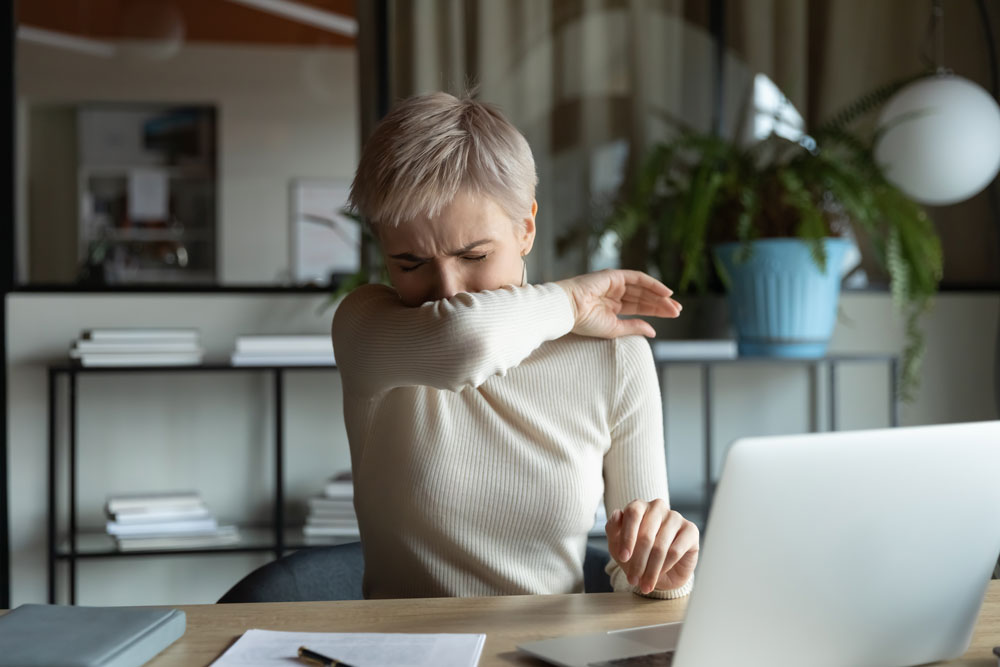What Are The Signs and Symptoms of COVID 19?

Cough? Sneeze? Sniffle? It’s happened to a lot of us during this pandemic. Running to our favorite search engine and asking, “What are the signs and symptoms of COVID-19?” has somewhat become the norm.
In this article, we’ll try to help ease a bit of anxiety and provide you with information that will help you determine whether or not you require medical assistance.
Did you know that it could take up to two days or even up to 14 days before noticing symptoms?
There’s a vast amount of information on the web about coronaviruses, but the public didn’t give much attention before November 2019. In fact, they cause most of the colds that affect us every year but are not a serious threat to most “healthy” people. A new strand, SARS-CoV-2 (COVID-19), is believed to have been transmitted from a small animal (pangolin), then later adapted the ability of human-to-human transmission.
What are the sign and symptoms of COVID-19?
Once a person has contracted COVID-19, it can take two to 14 days for symptoms to appear. Signs and symptoms may vary, but here are the likely signs to look out for if you think there’s a possibility you may have come in contact with someone who’s infected.
- Eye problems such as enlarged, red blood vessels, swollen eyelids, excessive watering, and increased discharge
- Chest pain or pressure
- Loss of speech or movement
- Fever (100.4 or higher)
- Headache
- Body aches and pains
- Tiredness or fatigue
- Dry cough that does not produce mucus
In some cases, patients have experienced mild gastrointestinal symptoms, including a loss of appetite, nausea, vomiting, and diarrhea. These symptoms might only last one day or more.
Others have reported a loss of smell or taste without nasal congestion. This symptom has been known to last between 9 and 14 days but could last longer. Imagine not being able to taste a nicely baked pan of lasagna!
If you are experiencing any of the symptoms listed above, please seek immediate medical care. Every 24 hours counts when fighting this virus. Plus, you’ll feel much better knowing you tested for COVID-19 when it comes to potentially exposing others close to you.
Symptoms that have been listed as emergency warning signs are*:
- Difficulty breathing
- New Confusion
- Inability to wake or stay awake
- Bluish lips or face
*This list is not all possible symptoms. Please call your medical provider for any other symptoms that are severe or concerning to you.
So, how does COVID-19 spread?
According to the Center for Disease Control (CDC), the virus that causes COVID-19 is thought to spread from person-to-person contact through:
Droplets – When an infected person coughs, sneezes, or talks, tiny droplets carry the virus into the air from their nose or mouth to someone nearby. That is why it is recommended that we stand at least 6-feet apart (social distancing) from one another.
Airborne transmission – According to some scientists, droplets that contain the virus can stay in the air for up to 3 hours, making it possible for someone to breathe it in without knowing. Hence, this is the reason experts suggest wearing a face mask.
Surface transmission – COVID-19 can live up to 2-3 days on surfaces like stainless steel and plastics. Therefore, it is highly recommended to regularly wash our hands or use alcohol-based hand sanitizers if, for some reason, water is not available.
While it is good to know the signs and symptoms of COVID-19, it is much better to get tested if you have come in contact with the virus. COVID-19 testing in San Antonio is widely available, so we highly recommend visiting your local testing site to know your status. Although it is widely known that cases of the disease range from mild to deadly, the good news is that a high percentage of those infected will eventually recover from the disease.
Knowing your status can save you from the unnecessary stress and anxiety that is accompanied by having symptoms similar to, but not that of a true COVID-19 infection. How’s that for a sigh of relief? It will also help to keep others safe along the way.
Should I Wear A Mask In Public?
It is highly recommended that we all wear masks in public to help slow the spread of the virus. Wearing masks, as well as practicing social distancing measures, especially in places such as grocery stores, gas stations, and pharmacies will help slow the transmission of asymptomatic and symptomatic people. On May 11th, San Antonio Metropolitan Health (SA Metro Health) extended its testing for asymptomatic individuals.
While some masks are more effective than others, we suggest that wearing something is better than nothing at all. The Wall Street Journal reported that wearing a bandana or other makeshift covering will help with the disbursement of droplets, thus limiting the spread.
The City of San Antonio has implemented a mandate that face coverings are required for the general public and directs all commercial entities to require employees and customers to wear them in situations where social distancing is not feasible.
About LASO
Here at LASO Health, Inc., we’ve made it super easy to get tested for COVID-19 or find a physician near you. For COVID-19 testing, simply download the free LASO app from your smartphone device app store and sign-up. After signing up, on the home screen, select “COVID-19 Testing” for prescreening and you’ll be directed from there. It’s that simple!
LASO Health App is a mobile-based application created by a dynamic team of Physicians and Technologists to connect and empower both people and providers, and to remove the barriers that stand between them and the direct doctor-patient healthcare relationship. The LASO App is the go-to Covid-19 testing app in San Antonio.
